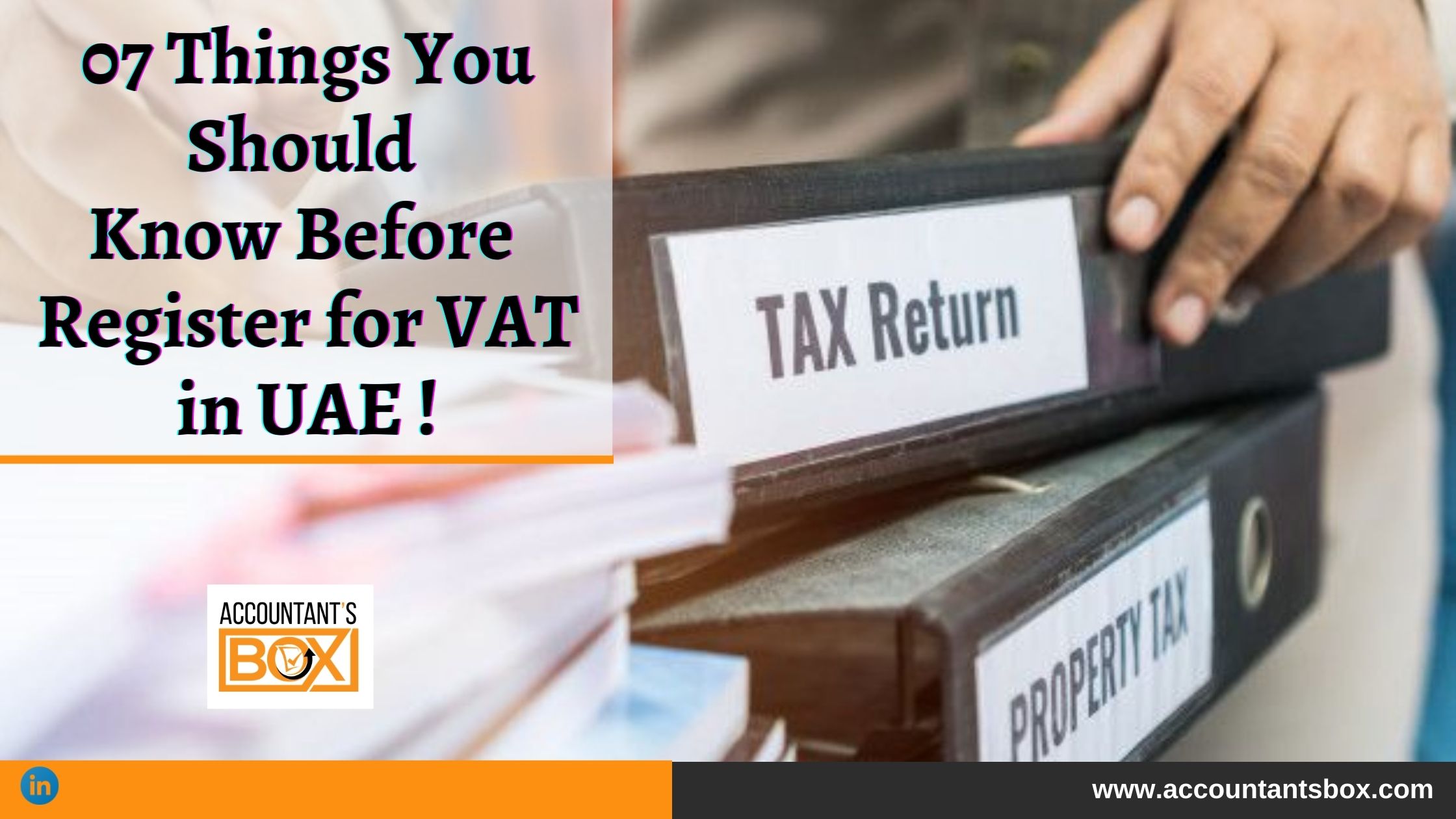THINGS TO KNOW BEFORE YOU REGISTER FOR VAT
VAT was introduced in UAE in Jan 2018 at the standard rate of 5%. If you are a business owner or planning to establish a business in UAE, you need to register under UAE VAT Law. Here are a few things you need to know before you register for VAT:
Knowing when to register for VAT
- If your company in the preceding 12-months or over the next 30-days exceeds the threshold limit of AED 375,000 in taxable supplies and imports, you need to register for VAT.
- If your taxable supplies and imports fall under this threshold of AED 375,000 but exceed AED 187,500, you can choose to do a voluntary registration.
- Knowing when to register – or deciding when to voluntarily register – is complicated. If you don’t register when you reach the threshold limit, you’re subject to penalties and fines. On the other hand, if you choose to register voluntarily, even though you may enjoy the benefits of tax refunds or offset expenses – it can also be an unnecessary hassle and cost.
- A natural person is also required to register for VAT if his taxable supplies exceed the mandatory threshold of AED 375,000/-. If the registration is not done within the time -period, it can attract late registration penalties
Not all goods and services are subject to VAT
- Not all goods and services are subject to VAT. Some are exempt or zero-rated from VAT.
- Zero-Rated VAT includes goods and services that are VAT taxable but at the rate of 0%. It means that you must keep a record of them and report them on VAT return even if the rate is 0%
- Exempted VAT category includes goods and services that don’t incur any input or output VAT charges. VAT-exempt sectors include bare land, residential property and local passenger transport.
- If your business supplies or buys products that don’t fit clearly into the standard VAT category, you will need the help of VAT consultants. They will ensure that you don’t end up overpaying or underpaying your taxes.
Free Zones which are exempt from VAT
- There are certain free zones commonly known as Designated Zones who qualify for a special VAT treatment. For the businesses operating in Designated Zones, many supplies of goods will be outside the scope of UAE VAT, subject to strict criteria and detailed record keeping. Supplies of services are subject to normal UAE VAT rules.
Documents required for VAT Registration in UAE
– The documents required for VAT Registration in UAE include:
- Copy of trade license
- Passport copy of business owner and partners
- Copy of Emirates ID held by owner and partners
- Memorandum of Association (MOA) of the company
- Company contact details
- Bank account details
- The income statement for the last 12 months
- Nature of business and activities performed
VAT Registration Process
- To initiate VAT registration in UAE, one must fill the VAT Registration form online and submit the essential documents required along with the form to attain VAT Number.
- All sections marked with an asterisk (*) must be completed otherwise you will not be able to submit the form.
- If you fail to provide accurate information and documents, it can lead to delay in processing the application and could also lead to your application being rejected
Can one person have more than one VAT Registration No.?
- A person can only hold one TRN for VAT purposes at any one time.
- Branches are also not separate legal entities; hence only the entity of which they are branches should apply for registration
VAT Registration is not easy, considering all the compliances required to the laws and regulations. Our team of expert VAT consultants at Accountants Box can assist you not only with the VAT registration but also with VAT accounting and VAT return filing.
For information, you could reach us at info@accountantsbox.com.

